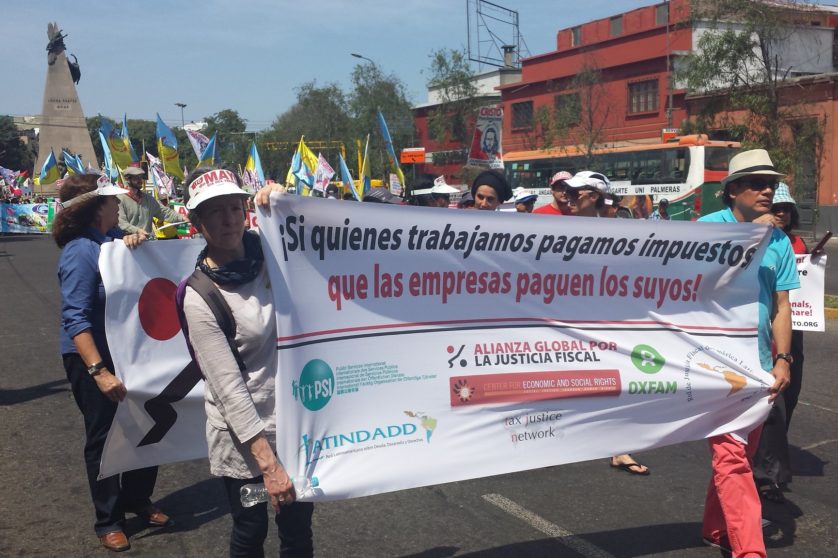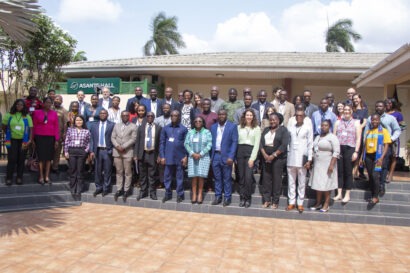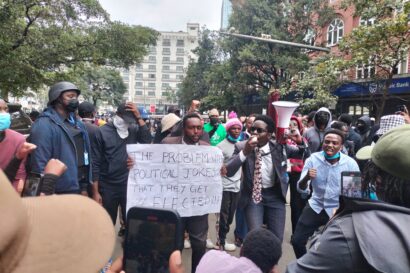During the summer of 2020, the International Budget Partnership (IBP) and the International Centre for Tax and Development (ICTD) worked collaboratively to conduct a broad scan of civil society organisations (CSOs) working in the taxation space with a specific interest in domestic taxation. Our objective was to create a comprehensive picture of the emerging field, understand its general features, the challenges faced by CSOs, and to provide a resource for others, including CSOs, governments, and donor agencies. This scan coincided with the emergence of IBP’s Tax Equity Initiative, which “works to promote citizen engagement with budget policies and processes to make them more equitable and inclusive”. The ICTD has continued to deepen its work in this field, launching a Tax and Civil Society research programme earlier this year.
The global CSO scan
The new CSO scan database presents 171 organisations working across 66 countries and 7 regions, and provides a comprehensive overview of what each organisation does, the types of work they are engaged in, how they approach their work (theory of change), the types of taxes they focus on (both domestic and international), whether they are part of any international networks, and lists their primary publications on tax from recent years.
Insights from the scan, complemented by findings from an online survey and in-depth interviews conducted with selected organisations, are summarised in the new paper “Of Citizens and Taxes: A global scan of civil society work on taxation.” While the paper provides a comprehensive look at the characteristics of the organisations, this blog highlights trends from low-and- middle income countries, and provides some ideas for how CSOs and others in this space can use the scan in their work.
International and regional networks
The CSO scan revealed that strong regional and international (both South-South and North-South) civil society coalitions exist in this space. Networks such as Tax Justice Network Africa, Latindadd and Tax and Fiscal Justice Asia have contributed to an environment in which civil society groups have been able to enter into tax work, receive support, and build capacity around issues of taxation, enabling greater engagement in international and domestic debates around tax policy, tax reforms, and tax administration. A few key findings emerge within each of the regions:
- The Asian CSOs, compared to other organisations in the sample, are the most heterogeneous in terms of aims, ideologies and practice. This is unsurprising given the continent’s size and varying socioeconomic and cultural contexts. There is however noticeably less coordination and fewer networks and linkages between the listed organisations.
- The Sub-Saharan Africa sample is also diverse in terms of the type of work organisations are undertaking. Across the region, there is a general dependence on large aid bodies, charities, and state aid organisations with fewer fully independent or locally funded CSOs. While Asian CSOs tend to have links with trade unions and labour organisations, this is less apparent in Sub-Saharan Africa. Nevertheless, there is a growing number of national-level CSOs increasingly involved in issues around domestic revenue mobilisation, likely due to encouragement from organisations like TJN-A, which has robust membership on the continent.
- In the Middle East and North Africa, organisations tend to have a more consistent focus on domestic tax policy, civil society participation, and fiscal transparency. These issues are often addressed in connection with broader social issues such as democratic participation, civil rights, and gender disparities. The Arab NGO Network for Development (ANND) plays a central role by facilitating and publishing most of the research and reports produced in the region.
- In Latin America, Latindadd is a crucial network and is an example of a pioneer in South-South cooperation, illustrated by its extensive collaborations with the Africa Forum and Network on Debt and Development. The existence of these networks is important as they provide a space for collaboration and sharing of best practices, especially given the relatively new tax policy practice arena in many lower-income countries.
What does this mean for civil society work going forward?
The CSO scan is a useful tool for organisations in lower-income countries, which are becoming increasingly prominent in the taxation space, thanks largely to the work done by regional and international networks. The work that for example Latindadd is undertaking to foster South-South cooperation can be facilitated through this scan. Organisations can search for partners within and across countries which are doing similar work and form linkages to either collaborate on mutual areas of interest or learn from each other. Where such linkages may exist at the regional level, not all CSOs in the scan are part of a network. This scan additionally provides an avenue for inter-regional learning amongst CSOs. The focus on domestic taxation is important, as this has largely been a neglected area of work in these regions.
For IBP and other large (I)NGOs, this scan be used to scope out interesting CSO partners to support in countries of interest. It can also be used to connect existing in-country CSO partners (that for IBP, work on budget issues) to CSOs that are working on tax, specifically. Organisations like the ICTD can use the scan to align research work with policy interest areas. For example, the scan shows that many organisations are interested in – and work on – tax expenditures, but evidence on their effectiveness as policy tools is scant at best. Accordingly, there is scope for research on the impacts of tax expenditures that might help both civil society and governments do a better job at identifying policy priorities and targeting interventions. There are also some regional gaps in CSO activity, the key one being in Asia, and this is an opportunity for donors, international NGOs, and large regional CSOs to foster and support more tax work in this area. These actors can also play a role in addressing CSO constraints, particularly in funding and capacity (technical and human resources) which would go a long way in shifting the locus of influence and power from regional networks to national and grassroots CSOs.
While the CSO scan tells us a lot about what the field broadly looks like at the present moment, there are large opportunities for future research and work. In exploring these new avenues, the ICTD and IBP intend to continue collaborating and engaging with each other to support CSO capacity building and research targeting key topics and capabilities. These include topics such as: the effectiveness of CSO engagement in tax policy-making; how broad popular support can be encouraged for progressive tax policy agendas; or even what the impact of Covid-19 has been on progressive tax policy advocacy.




